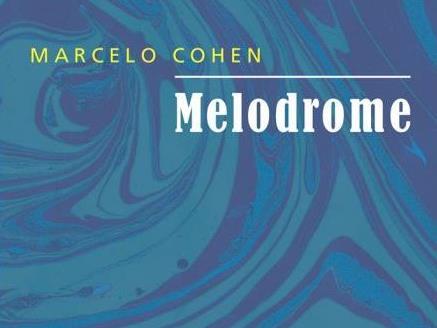Marcelo Cohen’s Melodrome translated by Chris Andrews.
Melodrome is Marcelo Cohen’s first work published in English. It was originally published under the title Balada, meaning ballad. However, Cohen’s editor and his translator, Chris Andrews, thought that ballad had different connotations and implications in English (especially in Australia) to the Spanish. So instead Melodrome was decided as the title by Cohen, Andrews and his editor. Melodrome draws from ‘melos’, song, and ‘dromos’, a journey – especially one of return.
According to Cohen, Melodrome is a novella that hovers between fantasy and realism; he describes it as ‘fantastic sociology’.
Melodrome takes place in a fictional country called the Panoramic Delta, where many of Cohen’s previous books are set. His fertile imagination has conjured a place of certain political, technological and cultural norms that could be a glimpse into what our own future might hold.
Not only is the world of the Panoramic Delta marginally different from ours but its language, while comprehensible, includes some made-up words readily intelligible by their context or structure, such as when we are told the ‘chronodeon of a nearby building sings the time’. This shift to a reality at a slight remove from ours is part of the charm and challenge of this novella. There are readers who dislike science fiction and in particular dislike the made-up words that sometimes pollute that genre, but this novella is not that type of science fiction.
The narrator is one of the ‘deros’ who sit on the ground in the courtyard of a Deluxin guesthouse, waiting for the food scraps handed out each evening. That, and the free therapeutic counselling by the state-employed Dr Suano Botilecue, attracts the unemployed to this spot.
Lerena Dost, Suano’s on-again off-again lover, wins 5,900,000 ‘panoramics’ in a lottery and believes she is indebted for the win to Dona Munava, a charismatic former singer. So with the help of Suano, she goes on a hazardous journey to repay this self-imposed debt. Munava, now a powerful and secretive leader, does not wish to be found, however, and puts many obstacles in Lerena and Suano’s way. When Munava is finally tracked down she makes it clear she does not wish to be paid.
Cohen delves into a range of ethical conundrums. He explores what love is in its many guises – what it can be and what we think it is, or what it might be. He questions the conventional view of success and failure. He uses the dialogue of his characters and the twists of the plot to comment on some of the problems of our time, like forced labour and pollution. He peppers the novella with a wealth of aphorisms, such as: ‘Not every return from a journey is an end. But neither is it true that the only end is death. Who can tell how this will finish.’
If this novella is an example of the quality of fiction now being penned in Argentina we can only hope that Andrews, to whom we owe this excellent translation, will be kept very busy.
4 ½ stars ★★★★☆Melodrome
By Marcelo Cohen
Translated by Chris Andrews
Print ISBN: 9781925336771
pp : 160
Published: September 2018
Giramondo Publishing
$24.95





